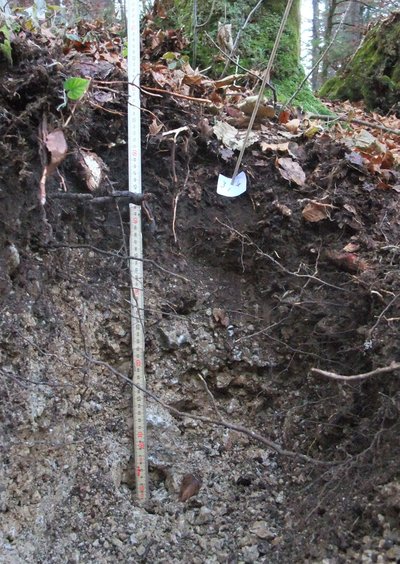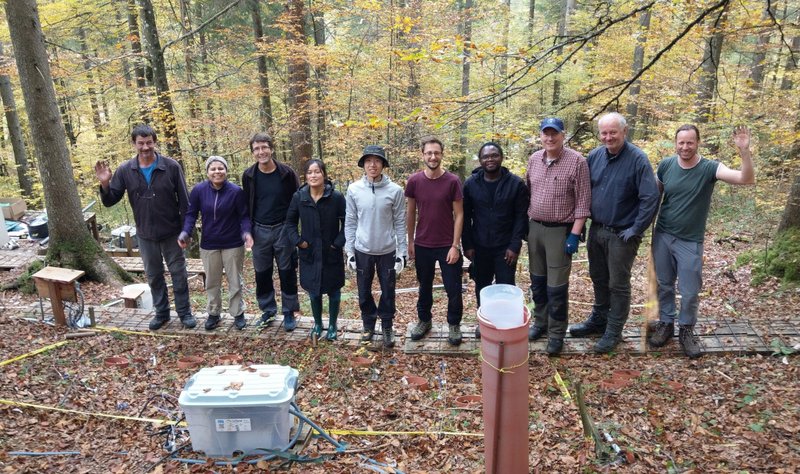Climate experiment

Heavily rooted topsoil on the experimental plot. Photo: © BFW
Climate warming will strongly affect temperate forests. But the response of fine roots, key to plant nutrition, water uptake, soil carbon, and nutrient cycling is unclear. At the climate experiment site in Achenkirch, Tyrol, small plots of a mixed spruce-beech forest have been warmed by 4 ° C with a specially constructed "forest floor heater" since 2004. The studies were carried out together with partner universities in Bayreuth, Bonn and Vienna and funded by the Austrian Science Fund FWF.
Recent results show that there are about 20 % more fine roots in forest soil warmed by 4 ° C than in non-warmed soil. Roots tend to be longer and thinner, and the colonization of roots by bacteria and fungi (mycorrhiza) has also changed as a result of warming. The most likely cause is adaptations to decreasing nutrient availability over time in the warmer forest soil.
"Our evaluations show that more fine roots are produced in the warm soil: Fine root production approximately doubled in the warmed plots after 14 years. The trees apparently have to invest more carbon in the roots to ensure their nutrient supply," reports project leader Andreas Schindlbacher of the Federal Forest Research Center (BFW). In addition, root length, root area and root tip density were also significantly higher in the warmed plots.

Cleaned fine root. You can see the light-colored mycorrhizal root tips. Photo: © BFW
However, soil warming also changed the composition of the ectomycorrhiza. This association between a plant and a fungus represents the most common root symbiosis in Central European forests. The mycelium forms a dense mantle around the young, uncorked root ends; this creates a network that facilitates nutrient exchange between the fungus and the plant. For example, the drought-tolerant genus Cenoccocum increased in warmed soil.
Results
The results suggest that global warming increases carbon inputs to the soil in the ecosystem studied because it accelerates the growth and turnover of fine roots. "This would be quite positive in principle, because soil is generally more likely to lose carbon due to warming and the associated boost in microbial activity. Increased root growth could at least cushion this effect somewhat," says Andreas Schindlbacher. A change in the morphology of fine roots and a different composition of the fungal community could optimize nutrient uptake by the trees.

Team of the international FWF (D-A_CH) project in front of one of the heated plots. Photo: © BFW
